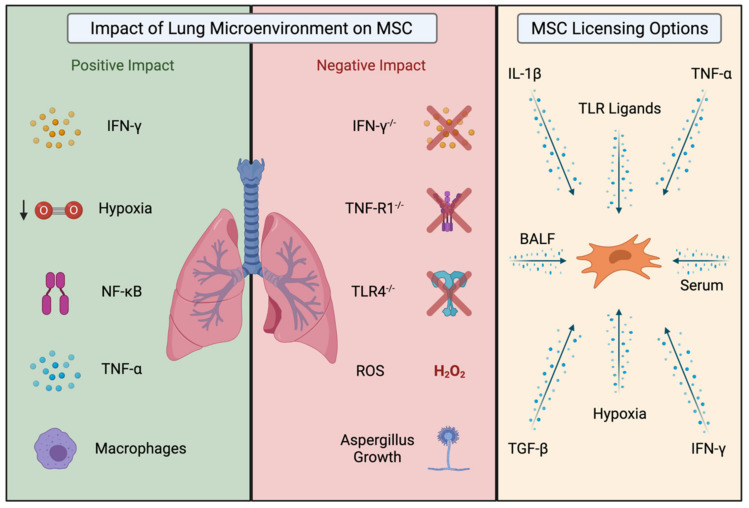Figure 1.
The Lung Microenvironment can positively or negatively influence MSC licensing and therapeutic effects. The presence of pro-inflammatory cytokines IFN-γ and TNF-α license MSCs and promote MSC immunomodulation. A hypoxic environment can license MSCs and enhance their survival. Activation of NFκB signalling has been identified as an important factor in MSC licensing. The crosstalk or interaction between MSCs and macrophages following intravenous administration has been shown to play a key role in shaping MSC therapeutic effects. The absence of TLR4, TNF-R1 or IFN-γ on MSC or in the disease microenvironment has been shown to negatively impact MSC function. The presence of Aspergillus growth or reactive oxygen species (ROS) negatively impacts MSC survival. There are several licensing options whereby prior licensing of MSCs can be achieved, in vitro, prior to administration. Licensing options include proinflammatory cytokines, the anti-inflammatory cytokine TGF-β, via TLR ligand activation or by exposure of MSCs to disease microenvironments in the form of patient derived serum or bronchoalveolar lavage fluid (BALF). Image created using Biorender.com.

